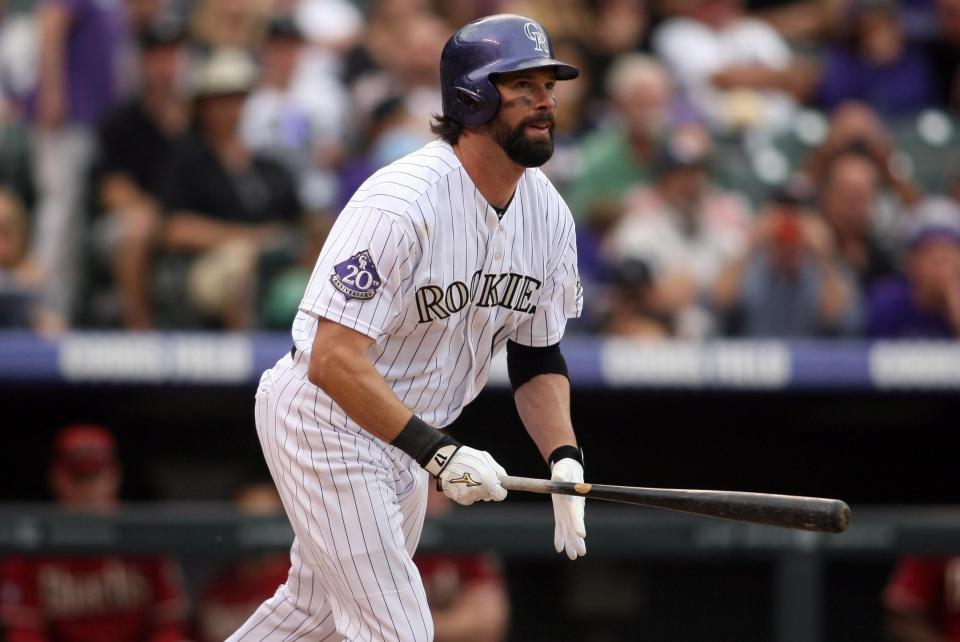Todd Helton's Hall of Fame case is complicated by Coors Field – but the glass ceiling may be broken
He may have not had the most eye-popping home run numbers, but Colorado Rockies first baseman Todd Helton was one of the top hitters of the late-90s and early-aughts and has an increasingly good chance of being inducted into the Baseball Hall of Fame in the years to come.
Now in his fourth year on the ballot, Helton's support jumped from 16.5% in his first year to 44.9% in year three.
Helton's candidacy is complicated by the ballpark he called home for his entire career – whether it's fair or not.
His numbers are Coors Field were eye-popping. He hit .345 in his career at home and did better than .375 every year at home from 1999-2003. Consciously or not, fans – and Hall of Fame voters – have always put asterisks on the statistics of Colorado players.
However, Larry Walker's induction in 2020 may have broken the glass ceiling for Helton. Walker, of course, didn't spend his whole career in Colorado but had his best years with the Rockies and hit .381 in his career at Coors.
Ultimately, the argument overblown for Helton. His career .855 OPS on the road is better than the overall career marks of first-ballot sluggers like Reggie Jackson and Eddie Murray.
Let's take a closer look at Helton's case:

The case for
Helton's 10-year stretch from 1998-2007 – batting .333 with a 1.017 OPS – ranks among the best decades of any player in recent history. For comparison, Albert Pujols hit .331 with a 1.050 OPS over the first 10 years of his career.
His 2000 season was the stuff of legend. One of only three players to hit .372 in the new millennium (along with Nomar Garciaparra that season and Ichiro Suzuki a year later) Helton led the majors in average, OPS (1.162) and extra-base hits (103)
Helton won three NL Gold Glove awards and was one of the most reliable first basemen in the game.
The case against
Regardless of Walker's induction, the Coors thing hangs over Helton's candidacy. There will always be a perception that his greatness was inflated. As stated above, it's largely overblown.
Helton's counting stats also leave something to be desired. His 369 career homers probably don't pass the eye test for a first baseman (or any hitter) of the era and he didn't reach 20 home runs in the last eight seasons of his 17-year career.
Voting trends
Through 161 ballots in Ryan Thibodaux's 2022 Hall of Fame tracker Helton is up to 56.7%. He will probably end up a bit lower than that in 2022, ultimately making a modest gain in his fourth year.
2019 – 16.5%
2020 – 29.2%
2021 – 44.9%
Overall outlook
Things are looking good for Helton.
Walker's induction certainly helped, as Helton saw a 15% increase in support the following year. The ballot will be cleared up in 2023 with Barry Bonds, Roger Clemens, Curt Schilling and Sammy Sosa are all gone, and that should bode well for Helton who has been the victim of the 10-vote maximum.
This article originally appeared on USA TODAY: Todd Helton's Hall of Fame case: Coors Field could be a factor

